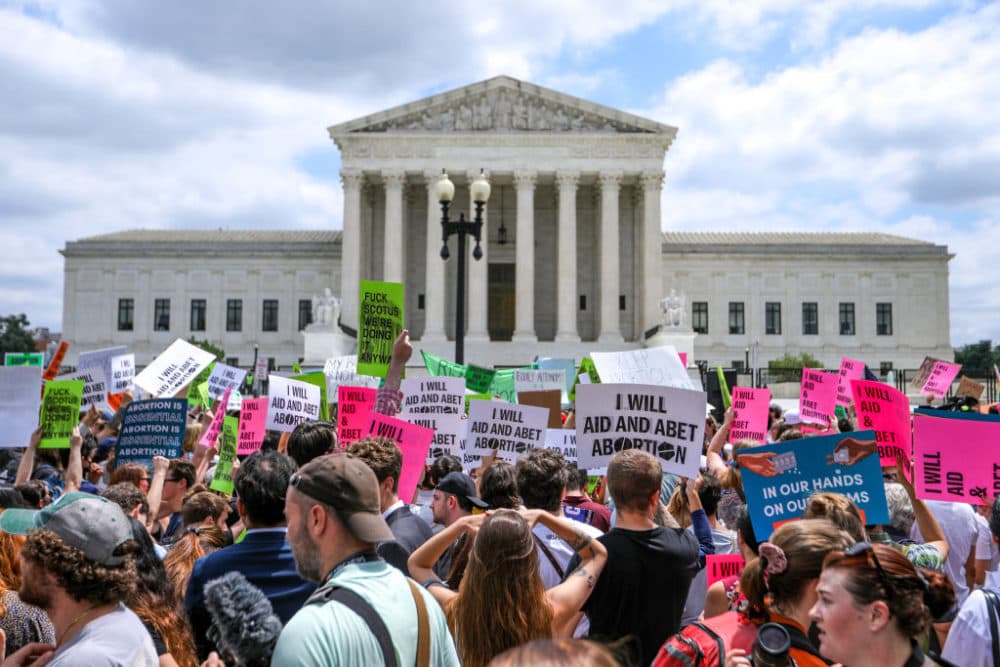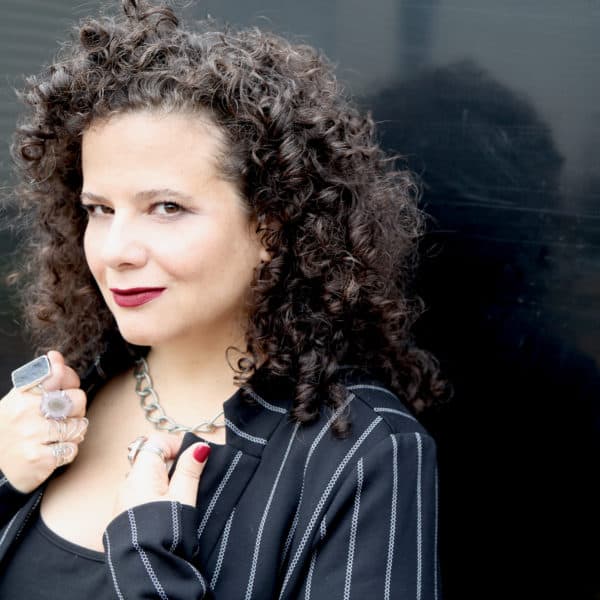Advertisement
Commentary
If only the Supreme Court justices had better sex ed

It’s official: the Supreme Court today released their opinion in Dobbs v. Jackson Women’s Health Organization, and it’s fundamentally the same as the draft that was leaked in early May. Roe v. Wade is no longer the law of the land. Abortion has become instantly illegal in nearly every case in 15 states, with 10 more poised to join them, and even more already imposing medically unnecessary restrictions.
Today, there are many more people who need and want abortions who simply won’t be able to get them, and that lack of access will result in widespread, uncountable, completely avoidable suffering and loss. People — disproportionately Black women — will die in childbirth after being forced to birth a child against their will. Children will go hungry because their parents lost a job when they had to travel to get abortion care, or because they were forced to bring another child into an already financially strained family. People will be haunted by the trauma of giving a child up for adoption for the rest of their lives. People who could have cured cancer, or made a movie that could change your life, will never get the chance because they are forced to care for children they did not want. The costs go on and on.
I’ve already begun to see a resurgence of takes arguing that if we really wanted to reduce abortion, we would teach K-12 sex and relationships education in every school around the country. And look: I am so passionate about sex and relationships education that I recently launched an entire organization dedicated to making it more available across the country.
But you know what I’m not passionate about? Reducing abortions. Abortion is a normal, safe medical procedure. There should be as many abortions as people want and need in any given year. Less is not better than more.
Still, this call for better K-12 sex ed does get one fundamental thing right: if we had universal sex and relationships education, we probably wouldn’t be in this place. There would be no less need for abortion. But our leaders would understand basic human biology. And they would know that women are co-equal human beings who deserve to be treated as such.
Abortion is a normal, safe medical procedure. There should be as many abortions as people want and need in any given year. Less is not better than more.
Imagine a world where every person in a position of power over our bodies understood the fundamentals of how our bodies work. Where no one could be elected to office believing that ectopic pregnancies could be “reimplanted” in the uterus, or re-elected asserting that an embryo the size of a lentil — which obviously has no heart — can have a heartbeat.
Even more than understanding the fundamentals of reproductive biology, leaders who grow up with sex and relationships education would have an essential understanding of the ideas of affirmative consent and bodily autonomy. As part of those lessons, they would have learned that women are people in our own right, and not a baby oven to control or unruly pets in need of punishment when we express normal human sexual desire.
What a welcome change over Justice Alito. He justified today’s ruling removing the bodily autonomy of millions of women by using the writings of a guy who was born in 1609, who had women executed for “witchcraft,” and thought men should be able to rape their wives at will.
Advertisement
Instead imagine the ruling that might have been handed down by nine justices who had K-12 relationships and sexuality education. It’s an education researchers have found not only improves a student’s current and future sexual and relationship health, personal safety and likelihood to stick up for someone else being bullied, but also reduces students’ belief in sexist gender norms and stereotypes, and increases their ability to practice affirmative consent, which is based in a recognition of the right each of us has to control our own bodies.
Am I suggesting that Sam Alito would be a fundamentally different person if he had better sex education? Maybe. Maybe not. I am saying that if more of us had this kind of schooling, we’d be a lot less likely to support or even tolerate would-be leaders who think America was better when women couldn’t have a credit card in their name or make decisions about their own bodies.
Of course, the democratizing social-emotional benefits of sex and relationships education are exactly why white male supremacists oppose it. They don’t want a world in which we all see each other as co-equal human beings worthy of respect. They don’t want us to know how to have the kinds of healthy relationships and connections that make us less vulnerable to extremist indoctrination. That’s all the more reason the rest of us should support it.
[I]magine the ruling that might have been handed down by nine justices who had K-12 relationships and sexuality education.
Here in Massachusetts, there’s an easy way to do it. Last fall, in a near-unanimous vote, the state Senate passed the Healthy Youth Act, which will ensure that any sex education taught in our public schools meets reasonable standards, such as being fact-based, teaching consent and being LGBTQI+ inclusive. With less than six weeks left in the legislative session, the House has so far declined to bring it to a floor vote.
If today’s ruling is leaving you, like me, feeling the urgency of raising the next generation of leaders right as soon as possible, you may find this tool handy — it will help you find your representative.
No matter where you live, let this be a clarion call to prioritize sex ed policy when thinking about who deserves your vote. We may not be able to change what the Supreme Court did today anytime soon, but we can start today to change what future Supreme Court justices learn.
